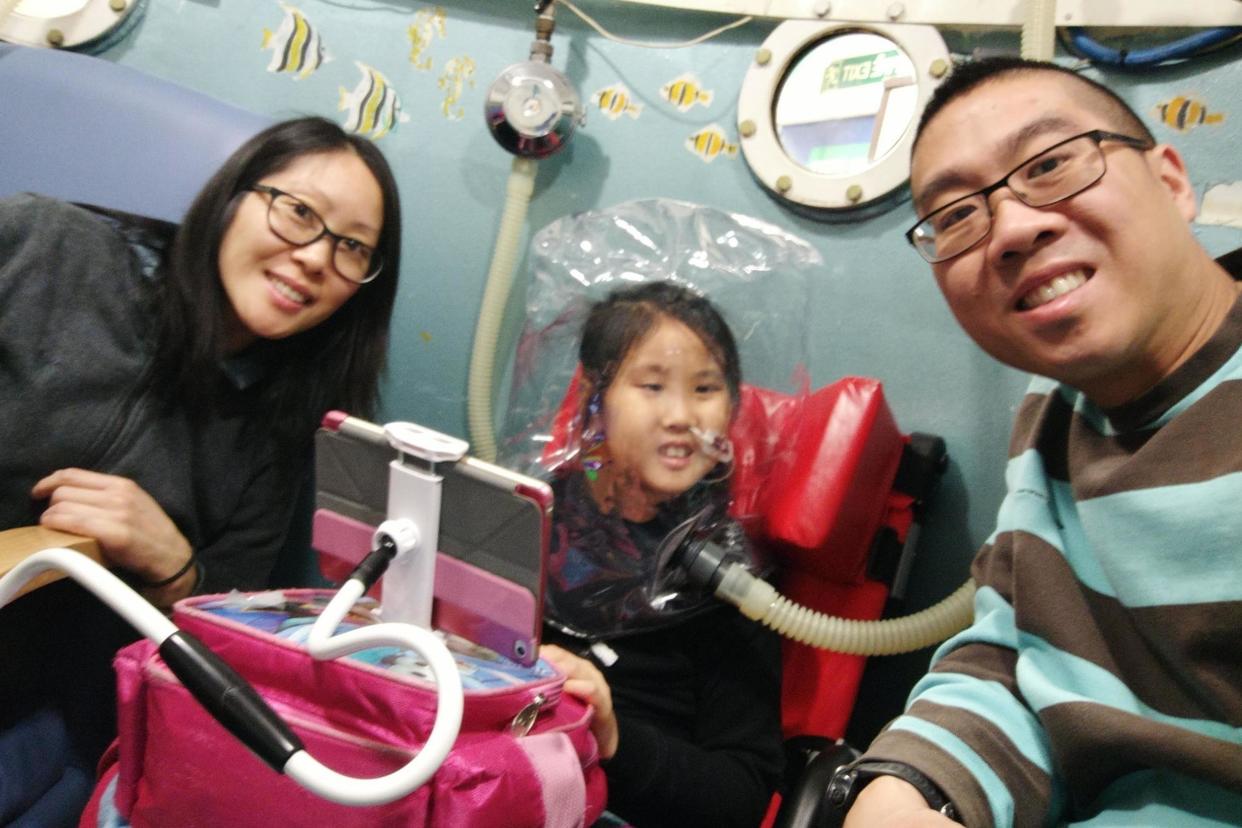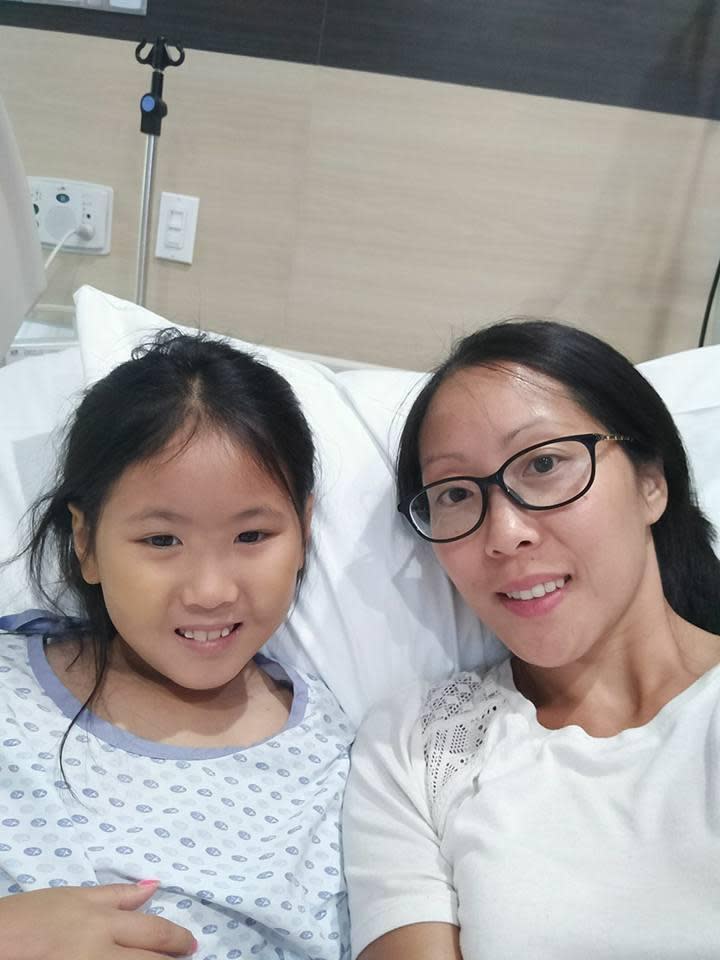Recovery hope for 'brave and inspirational' girl with rare tumour taken to Mexico for treatment

The father of an eight-year-old girl with a deadly brain tumour today described her as “brave and inspirational” as she passed two years since diagnosis.
Scott Lau said Kaleigh had made a “remarkable recovery” after fears she was at risk of dying in January following her return from pioneering treatment in Mexico.
Kaleigh, from Woodford Green, was diagnosed in April 2016 with a rare DIPG (diffuse intrinsic pontine glioma) tumour after experiencing double vision.
Last April she became the first European child to receive the treatment, intra-arterial chemotherapy infusion and immunotherapy, at the clinic in Monterrey.

Normally children live on average just nine months after diagnosis.
Kaleigh has undergone 14 treatments in Mexico during nine visits to the country. She is due to return next month.
Her case was mentioned in Parliament on Thursday by the Laus’ MP, Wes Streeting, during a debate on securing better treatments for cancer.

He called for the NHS to offer financial support to families such as Kaleigh’s who seek pioneering treatment abroad.
He said: “We do not yet know whether this experimental treatment will be successful, but we know one thing for sure: if Kaleigh had stayed in the UK, she would not be with us today.
"If ministers cannot fund treatment, let us at least look at funding the flights, accommodation and all the additional costs that families face.”

Kaleigh’s parents have spent £250,000 taking her abroad in a bid to save her life after being told the spread of the tumour meant there were no options left on the NHS. Each trip costs about £15,000.
Mr Lau and his wife Yang have received help from the Bradley Lowery Foundation but continue to appeal for public donations.
Mr Lau said Kaleigh’s tumour remained about 2cm but had become less active since the treatment, which involves injecting the chemotherapy directly into the brain via a catheter in the groin.
He added: “Our UK oncologist has said that Kaleigh has benefited from the treatment. How long it will continue to benefit her, we really don’t know.”
Visit kaleigh.ethanet.co.uk

 Yahoo News
Yahoo News 
